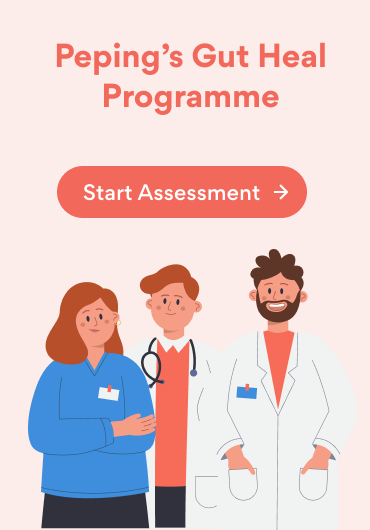Why can some diseases be cured while others have to be managed?
It is extremely to understand the distinction between the two categories of diseases
- Conditions that can be effectively cured
- Conditions that demand an ongoing approach of management and care
Let us look at a few health problems that can be cured:
- Bacterial Infections – With proper anti-biotics they can be completely removed from the body
- Injuries like fractures – With prompt medical attention and interventions theyse injuries can be healed
- Certain types of cancer – With advancements in surgical techniques, chemotherapy, and radiation therapy, high success rate is observed in remission.
Let us look at a few health problems that need to be managed:
- Diabetes – Can be managed through medication, lifestyle changes and regular monitoring
- Autoimmune disorders such as rheumatoid arthritis – Require ongoing management to control inflammation, reduce pain, and preserve joint function
- Mental health conditions like depression and anxiety can also be managed through a comprehensive treatment plan involving therapy, medication, and self-care practices.
Why do some issues need to be managed and not cured?
Certain issues fall into the realm of management rather than cure due to various factors
- Root cause of the condition may be unknown or multifactorial, making it challenging to develop a definitive cure.
- Certain disorders are complex and individual variability has a major role to play. These issues need to be managed.
- Furthermore, factors such as the progression of the disease, its chronic nature, and the goal of improving symptoms and quality of life rather than eradicating the condition altogether contribute to the approach of long-term management.
Why should IBS be managed?
Irritable Bowel Syndrome or IBS is the new term on the block. Let’s understand in a very crisp way about IBS. Gastrointestinal Issues can be divided into two categories – Organic GI Issues and Functional GI Issues. While organic issues are characterized by biochemical signals that have measurable physiological changes, functional GI issues have been termed as “not explainable by structural abnormalities” These issues consist of a group of lifestyle disorders which are characterized by symptoms like abdominal pain, bloating and the traditional pathology is not able to deliver measurable results
In simple terms, functional GI issues are syndromes or lifestyle disorders which can be managed in life. Irritable Bowel Syndrome is one such functional disorder that develops in the intestines and can cause abdominal pain, bloating, constipation, gastritis, diarrhoea and a few other disturbances. Let’s understand why IBS should be managed
- Since in IBS there are no structural abnormalities or specific biomarkers that can be targeted for a cure, the focus shifts toward managing the symptoms and improving the overall quality of life for individuals living with IBS.
- IBS is influenced by various factors, including diet, stress, gut microbiota, and visceral hypersensitivity. This complexity makes it challenging to identify a single “cure-all” solution.
- The diverse range of symptoms experienced by individuals with IBS requires a personalized approach to treatment and management. What works for one person may not work for another, highlighting the need for individualized strategies.
- Different techniques work for different people. Approaches such as dietary modifications, including low-FODMAP diets, have shown promising results in reducing gastrointestinal symptoms. Additionally, stress management techniques, such as cognitive-behavioral therapy and relaxation exercises, have been found to have a positive impact on symptom severity and overall well-being.
By adopting a management-focused approach to IBS, individuals can gain control over their symptoms, improve their quality of life, and reduce the impact that IBS has on their daily activities.
How do you manage IBS?
Managing Irritable Bowel Syndrome (IBS) requires a comprehensive and holistic approach. It is important to understand that IBS needs to be managed peacefully, recognizing that a frantic search for a cure may lead to frustration and disappointment. Instead, focusing on strategies that aim to reduce symptoms and improve quality of life can provide a more sustainable and effective path forward.
Manage IBS through Nutrition

- The foods we consume play a significant role in our digestive health and making appropriate dietary choices can help alleviate IBS symptoms. A key approach is the implementation of a low-FODMAP diet, which involves reducing the consumption of certain fermentable carbohydrates known as FODMAPs. These carbohydrates can trigger symptoms in individuals with IBS, and by restricting their intake, it is possible to reduce bloating, abdominal pain, and irregular bowel movements. However this is a technique that has worked for some cases and not all. In this diet, the itake of fermentable carbs is reduced and thus gut is less likely to experience fermentation and gas production
- Identification of trigger foods is really important. A lot of individuals are intolerant to lentils, while others would be to milk and some would be to some unique vegetables. Hence it is very important to understand the trigger foods for an individual. Addition of certain healthy foods is also very important. Items like buttermilk, fennel drinks, curd are all known to relieve these symptoms. Foods that are good in probiotics are essential.
Manage IBS through Exercise

- All forms of exercises are good for overall health and help in managing IBS symptoms as well. Exercises reduce the stress in the body and help in mood regulation
- Yoga is considered to be the best exercise possible. Different asanas like balasana, pawanmukta asana can be done daily o manage these symptoms
- Walking and Cardio are considered to be greatly beneficial and more than strength training when it comes to managing symptoms of IBS. More aeronic exercises like cycling stimulate the movement of the intestines, helping to regulate bowel function and reduce constipation or diarrhea
- Exercise releases endorphins, the body’s natural pain-relieving chemicals, which can help mitigate abdominal pain and discomfort associated with IBS.
Manage IBS through Stress Management
- One of the key ways to manage IBS through stress management is by practicing relaxation techniques, such as deep breathing exercises, meditation, or progressive muscle relaxation. These techniques help activate the body’s relaxation response, reducing stress and promoting a sense of calm. By engaging in regular relaxation practices, individuals with IBS can lower their stress levels, which in turn can lead to a reduction in symptom severity.
- Furthermore, evidence suggests that various stress management approaches, such as cognitive-behavioral therapy (CBT), mindfulness-based stress reduction (MBSR), and gut-directed hypnotherapy, can be effective in reducing IBS symptoms and improving overall well-being. These approaches focus on changing negative thought patterns, promoting self-care, and fostering a healthier relationship with stress.
Conclusion
In conclusion, managing Irritable Bowel Syndrome (IBS) requires a comprehensive approach that acknowledges the chronic nature of the condition and focuses on symptom management rather than a cure. Reach out to healthcare professionals specializing in IBS management to develop a personalized plan that incorporates nutrition, exercise, and stress management techniques.













